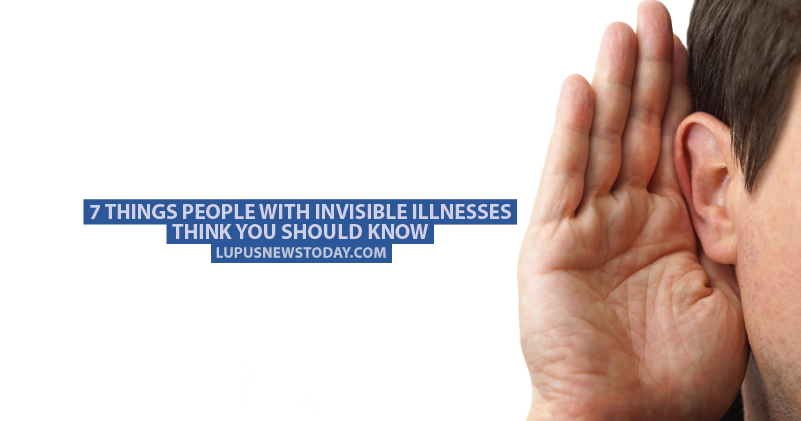7 Things People With Invisible Illnesses Think You Should Know

Chances are you know someone who has an invisible illness. An invisible illness means that a person is suffering from an illness or disease which isn’t necessarily visible on the outside. However, just because you can’t see what’s wrong doesn’t mean that there isn’t anything wrong.
People with invisible illnesses often need just as much practical and emotional support as those with illnesses you can see, but sometimes it can be difficult to know how to help. We’ve put together a list of things you should know about someone with an invisible illness based on information from prevention.com.

Don’t assume they’re faking their disability.
Just because someone has a disabled sticker in their car doesn’t necessarily mean they’re wheelchair-bound. Many people have these stickers because they need oxygen to get around or are waiting for organ transplants. Yes they might be able to walk, but they might not be able to walk very far and even a short distance can take a lot of effort.
Wondering how lupus is diagnosed? Find out here.

Understand symptoms may come and go.
People with invisible illnesses often suffer from extreme fatigue and chronic pain. Sometimes just getting through the day is difficult, leaving them with no desire to go out socializing after work. On the flip side, don’t assume that because they have an illness that they won’t want to go out–they might be having a good day and are feeling great. Be inclusive but respect the person’s decision, only they will know whether they are up for the activity.
Watch an inspirational story of a girl who decided to shave her hair off because of lupus.

Help is appreciated.
People with invisible illnesses often lead busy lives, including working, looking after family, and running active, busy households. An occasional offer of help, such as offering to run errands or cooking them a casserole will be greatly appreciated. Offer to be a point of contact should your friend suddenly need hospital treatment so you can support them. Ask them directly what you can do for them.
Did you know that Selena Gomez also suffered from lupus and has to live with recurring rashes?

They may look great but feel terrible.
A person may look good on the outside; they can dress well, have their hair and make-up done to perfection, but this doesn’t always reflect how they’re feeling on the inside. They may be masking both physical and emotional pain, and struggling to hold it together. Be a good friend and confidant, someone they feel comfortable talking to.
Find out more about how a nutritious diet can help while living with lupus.

They don’t want pity.
Chronic illness sufferers don’t want people’s pity, and this is just as true for people suffering from an invisible illness. Treat them with respect and don’t assume they can’t do things because of their illness–ask them!
Here are 13 lupus symptoms you should be aware of.

Take them at their word.
If they say they’re too sick today to come to work, go to the movies, or even eat…believe them. Likewise, if they say they are well enough to do things, believe them then, too.
Find out more about how fatigue can affect your life while living with lupus.

Don’t offer advice unless they ask for it.
Unless you are a professional in the field, steer away from giving any unsolicited medical, nutritional, or mental health advice. More than likely the person will have already tried what you’re suggesting or it will be downright dangerous for them. Leave the advice to the experts.
Read more about new treatment options for younger patients with memory loss.
Lupus News Today is strictly a news and information website about the disease. It does not provide medical advice, diagnosis or treatment. This content is not intended to be a substitute for professional medical advice, diagnosis, or treatment. Always seek the advice of your physician or another qualified health provider with any questions you may have regarding a medical condition. Never disregard professional medical advice or delay in seeking it because of something you have read on this website.





